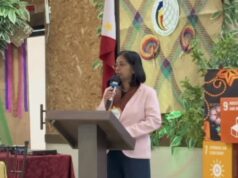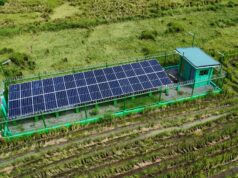Suddenly, a strong storm in Mindanao wreaks havoc, destruction and death in territories never before touched by typhoons, barely a week into the preparations to celebrate christmas.
We are made witness to trees and forests folding over from the pressure of torrential rains, rivers overflowing and submerging streets and homes, mud slides sweeping villages clean of habitation, and more, lives by the hundreds of lives lost and buried in the mud.
It would seem as though the nation is made to pause, rather, to stop, not just a while but for a longer time, to bend our knees and pray, firstly for the souls of the dead who met their fate in a midnight of sleep and darkness;
secondly, for the survivors who now have to salvage the pieces of their lives alongside their loss and grief; and, for the nation as all of us join with sympathy and support the people in the areas that were devastated.
The portrait of suffering in the faces and the damage to properties and livelihood re-create within us the shock of storms that passed our cities in the recent past. Although we are periodically visited by typhoons on an average of about two dozens every year, each time a catastrophy of immense magnitude occurs, we are still stunned and intensely pained.
Nature extracts revenge for whatever we have done to cause her rage. When the forests die, the rivers follow, and then, the people.
There are limits to what we can exploit from the earth – like the cutting of trees, or the excavations of mines; there are limits, too, to where we can construct our villages for homes and business – like alongside rivers, on the waterways, by the seashores and the slash and burning of mountains to build forbidden settlements;
there are limits, likewise, to the profligacy and indifference in the conduct of our daily lives – like the disposal of waste and the use of non-biodegradable materials that clog our sewage and tributaries, and with toxic fumes and emissions that clog our arteries, our lungs and, eventually, our hearts.
But we go on, even after such cataclysmic experiences, continuing our lives as though there were no lessons learned, or forgetting the sadness and the sorrow soon enough. The signs are everywhere.
Global warming is not just a natural phenomenon. It is the consequence of the vicious cycle of our own harmful lifestyles beginning with the way we have punctured the ozone layer with the poisonous gasses and carbon exhausts of what we call industrialization. Indeed, what we have lost in our hurry to be civilized is nature itself.
There was good reason for the ancient greeks to call the earth, gaiea, meaning, mother, who gives, nurtures and nourishes life. Perhaps it may not yet be too late to return to the first day of the world and begin re-creating our lives from that threshold.
Meanwhile, we offer our prayers for all those who were and continue to be suffering in mindanao because of the storm sendong, even as we enjoin the rest of the nation to gather wisdom from this experience and resolve to learn the good lessons and un-learn those that harm.




